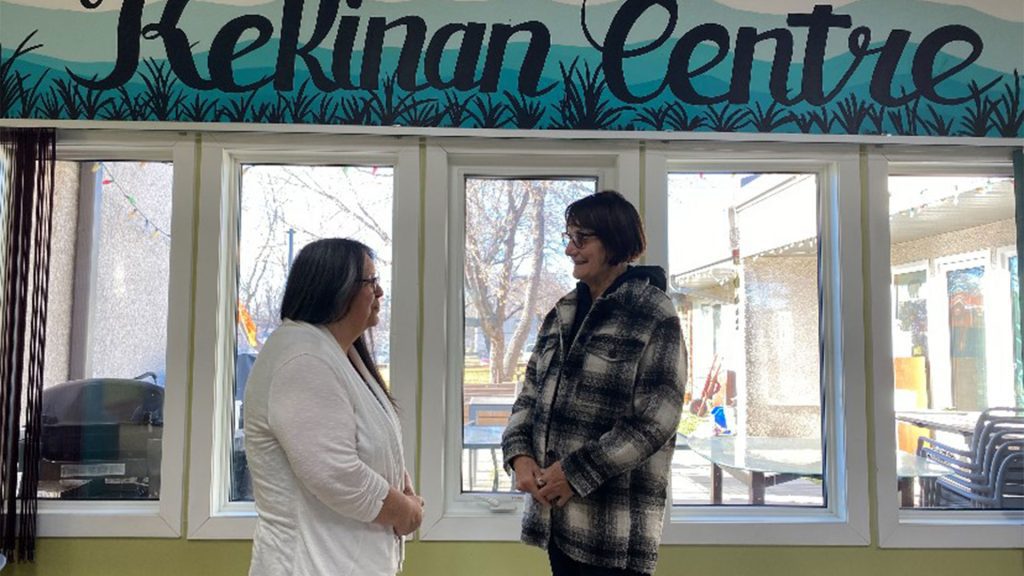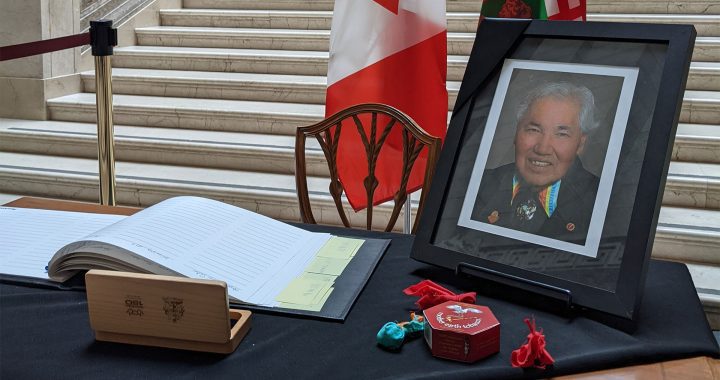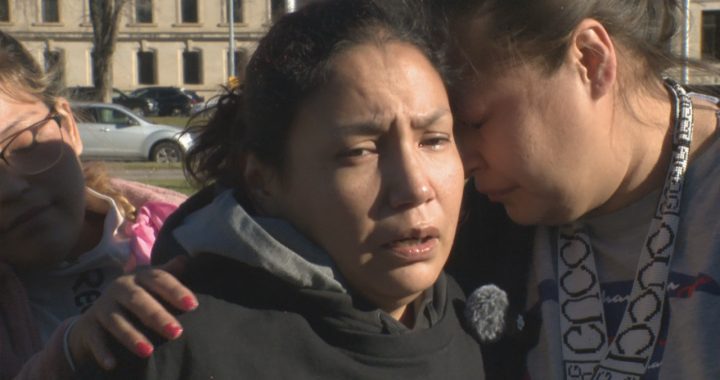
Joanne Mason (left) and Lucille Bruce studied the housing options of Indigenous seniors in Winnipeg for two years. Photo: Haley Lamy
A growing number of Indigenous seniors are homeless before finding an affordable place to live in Winnipeg, according to a study released by the Manitoba chapter of the Canadian Centre for Policy Alternatives.
The Minosin Kikiwa report, which means “a good home” in Cree, highlights a number of challenges facing Indigenous adults over 55 living in the Manitoba capital.
Co-chairs of the Indigenous Seniors Research Project Joanne Mason and Lucille Bruce found affordability was a huge issue, as well as culture.
“In seniors’ complexes the rules are so rigid, and (it’s) very much based on a Western model and world-view of aging,” said Bruce.
“We need to look at it differently and promote a model that integrates their cultural values and relationships … and where the extended family and community is welcomed within that complex.”
50 older adults
The study involved interviews conducted by social work students at the University of Manitoba with nearly 50 older Indigenous adults who identified as First Nations, Inuit and Métis living in Winnipeg over two years. It found the majority rented instead of owned homes and more than a third were or had been homeless.
Nearly all of the respondents struggled with poverty.
That tends to reduce the “quality of life and well-being” for older adults, said Mason, a former social worker and co-chair of the Indigenous Senior Resource Centre in Winnipeg.
“I find there are not enough people knowing how our lives go and they just want to put us in a corner somewhere and leave us there,” she said in an interview.
“We wanted to shine a light on (this issue) to remind people that us seniors, us elders are here.”
Precarious housing
The research showed many seniors were living in precarious housing situations.
“Their housing was not necessarily safe,” said Bruce in an interview.
“Some were in emergency housing shelters, some were in rooming houses.”
One senior was sharing her one-bedroom apartment with her son and his family members.
“She gave up her room and was sleeping on the couch,” said Bruce. “(Her family members) were in a predicament because they couldn’t find affordable places to live.”
Vulnerable to elder abuse
This is not only stressful but can make seniors vulnerable to emotional, physical, verbal and financial abuse, noted Bruce.
“That was talked about by some of the participants,” she said. “They had family members stuck in a cycle of inter-generational trauma that ended up financially abusing their parents and grandparents.”
And the seniors had a hard time saying No to their adult children.
“The (children and grandchildren) were abusing drugs or alcohol and had mental health issues,” added Bruce. “It’s really at a high rate in the Indigenous community and impacts Indigenous seniors.”
Mason said some seniors admitted they had to go without food to cover their living costs.
They struggle
“Those that own their own home – and some did – live in homes that badly need repairs,” she explained.
“So, they struggle to make sure they have enough to eat while at the same time paying for their own medication and transportation.”
That results in more seniors relying on food banks.
The study does offer some solutions, however.
Mason said developers, governments and funders need to consider more and different models of housing.
Services
“What we discovered in doing this research is that many of the services provided to seniors, in general, were very much focused on their physical needs,” she said.
“They’re isolated and struggle getting the supports that they require to have that quality of life and to end their years in a place that has a comfortable home – a safe and secure home, a home where family is welcome, where community is welcome, where they have that connection to community events.”
The pair recommended that Indigenous seniors be consulted in designing culturally and generationally appropriate housing that is more family oriented.
“They want to give back to the community and they have a lot to offer,” she said, particularly when it comes to mentoring the younger generations.
But they want to be valued for their time and attention.
“Many are doing it at their own expense,” added Bruce. “They’ve given up their own resources and food budget, and putting themselves at risk of losing their housing because of that. But they feel obligated.”








